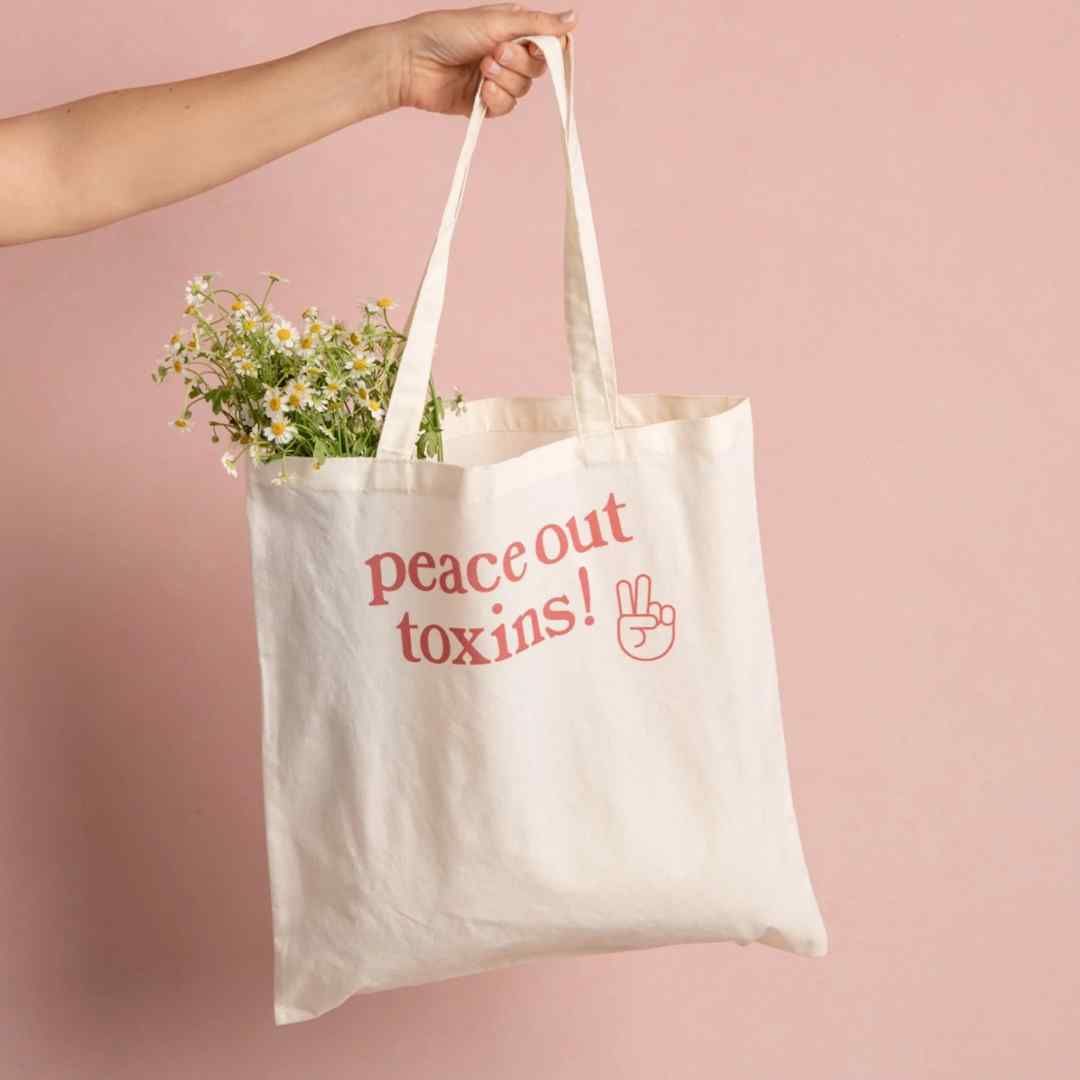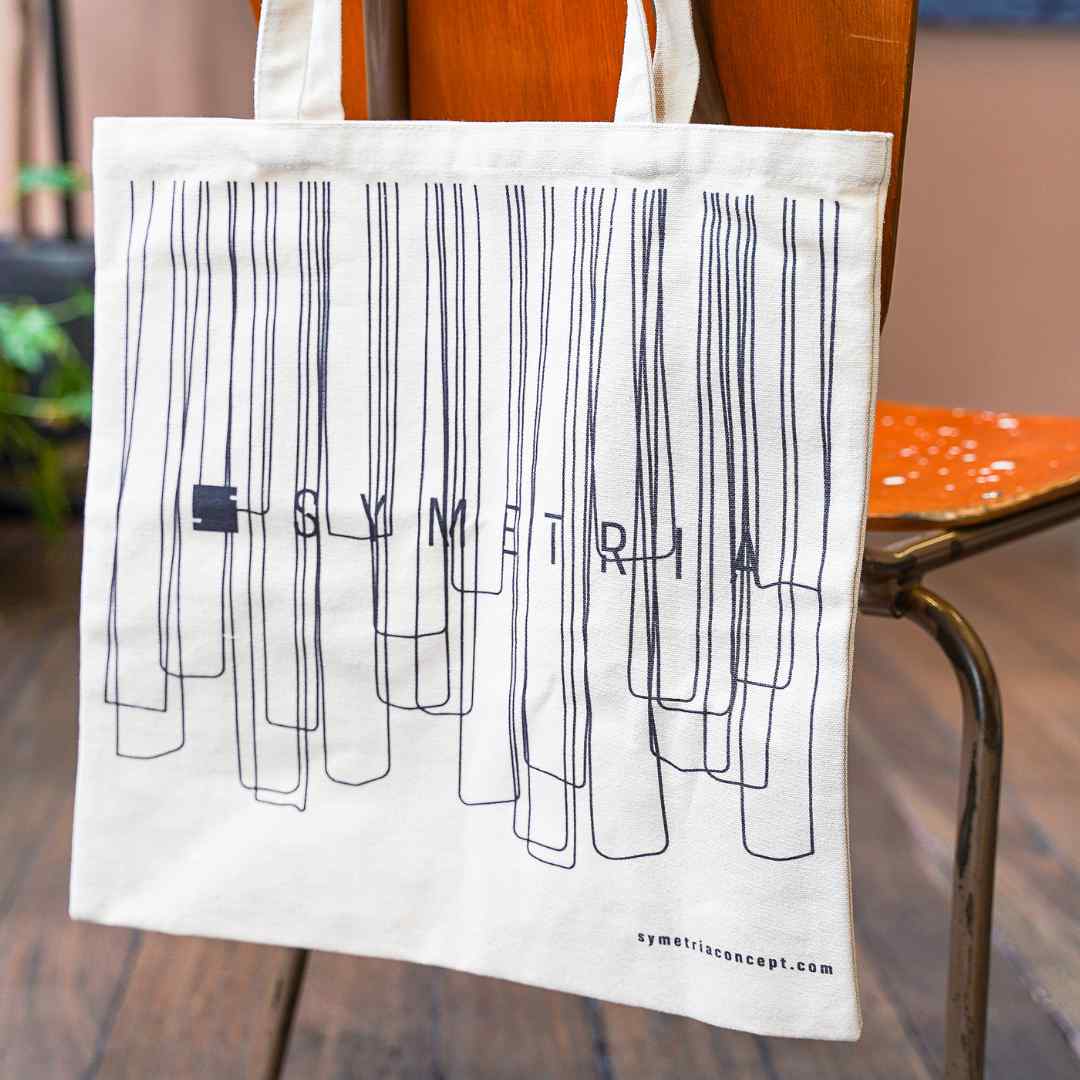noissue custom tote bag by @evivenutrition
‘Tote bags are good for the environment’ is one of those statements we don’t often question. Much like saying ‘the sky is blue’, many of us tend to take this phrase for granted in 2023. They’re a mainstay of the sustainability movement! Instead of a single plastic bag stuffed with hundreds more sitting in your cupboard – a staple of an earlier time – you might now have an impressive collection of reusable canvas tote bags.
From the perspective of a consumer, using tote bags is a no-brainer. However, from the perspective of a business owner, investing in this sustainable alternative to single-use plastic carries a few other considerations. From cost to customer to uptake, there are a few things to look at when you’re thinking about ordering custom tote bags. One of the biggest is environmental impact.
So, today, we’re not taking the fact that tote bags are good for the environment for granted. Today, we’re diving into the data to find out how much good opting for tote bags can really do on an environmental scale.

The Single-Use Plastic Dilemma
Single-use plastics are a holdover from a bygone era. They erupted in the 1970s out of a need for convenience, when populations boomed, businesses took off, and companies needed an easier, cheaper, production-line-friendly way to package their goods. From grocery stores to eCommerce businesses, companies all over the spectrum adopted this method, and they have persisted ever since. After all, they’re very convenient and cost-effective! But those attributes come at a price.
To understand how tote bags help reduce your business’ environmental impact, it’s important to know the scale of a single-use bag’s impact.
What does ‘single-use’ really mean?
Ultimately, ‘single-use’ is exactly what it sounds like. It’s a packaging product designed to be used only one time. Single-use products are usually made from fossil fuels, since they tend to create lighter and more durable packaging when compared to cardboard or paper alternatives. At least, that was the case when they rose to popularity!
Interestingly, single-use products can also be part of the sustainability chain. Compostable packaging like some of the products we have in our range are technically designed to be single-use. The difference lies in the rest of their lifecycle. Let’s dig a little deeper here.
From Earth to Customer
First, to create single-use plastics, you need petrochemicals. This is a wide class of chemical, and once refined, certain types are used to create the single-use plastics we’re all familiar with. Crude oil is the key ingredient for plastics, and it’s harvested from the Earth via oil rig (which are known for their capacity to damage and disrupt the ecosystems they inhabit). Aside from the ecosystem disruptions from the rigs, producing the refined hydrocarbons and the plastic itself shoots tons and tons of harmful greenhouse gases into the atmosphere every year.
From Customer to Landfill
Once a customer has unwrapped their product or carried their groceries home, that piece of single-use plastic’s destiny is to end up in the garbage. Unfortunately, this kind of plastic is classified as ‘hard to recycle’, which means it’s often left out of the recycling run. After all, statistically, about 91% of plastic isn’t recycled even when it does end up in the correct bin.
If we’re thinking single-use plastic bags, about 100 billion of these are thrown away annually in America alone.
From Landfill to Ocean
Sitting in the landfills, plastic contributes to the 15% of emissions for which landfills are responsible. Aside from that, plastics never actually fully degrade. They just break down into smaller and smaller pieces – which we call microplastics – eventually ending up in our ecosystems… and even our very bodies.
Happily, these facts are starting to break through to the general population, which is why tote bags have steadily become more popular. So, how do they help eliminate these single-use plastic bags?

Environmental Benefits of Canvas Tote Bags
The average single-use plastic bag is used for about twelve minutes. That’s right, just twelve minutes! In contrast, a high-quality canvas tote bag can last a year or more with daily heavy use. They’re more versatile, finding a home everywhere from grocery stores to the university campus. By creating a custom tote bag, you and your business can contribute to taking single-use plastic bags out of the running.
Let’s review the ways you would be contributing to the environment if you replaced any single-use plastic packaging in your production run with a personalized tote bag! Better yet, let’s do it through the lens of the three pillars of sustainability.
Reducing
Supplementing single-use plastics with a single durable alternative keeps tons and tons of plastic out of our oceans. Tote bags can be used as plastic bag alternatives, but they can also replace other single-use packaging. Whether you run an eCommerce business or a brick-and-mortar store, they represent an additional income modality and a packaging alternative. They’re wonderfully versatile!
Reusing
Reusability extends a given resource’s life out of landfill. Tote bags are a study in this principle, designed to be held onto and reused as much as possible. Best of all, once a tote bag reaches the end of its original life, it can be repurposed by the customer. From cushions to quilts to tea towels, there are any number of ways to give a tote bag new life. This is especially likely to happen if your custom printed tote bags are well-designed and aesthetically pleasing!
Recycling
Finally, when we’re talking about recycling, we’re talking about completing the chain of circularity. Once resources reach the end of their life, being able to recycle them and use them again puts them in the top tier of sustainability. It’s even better if said product was already made from recycled materials. Here at noissue, we offer custom tote bags in bulk made from 60% recycled cotton.
To help customers complete the cycle, we recommend including a dynamic QR code on the tote to guide them through ways to reuse or recycle the bag at the end of its life. Providing that education helps drive textile recycling!

Wrapping it Up
With all the benefits of creating personalized tote bags for your brand laid out here, what are you waiting for? Make a positive environmental impact and drive your brand forward. Reach out to the noissue team today to get started on your custom tote bags.
